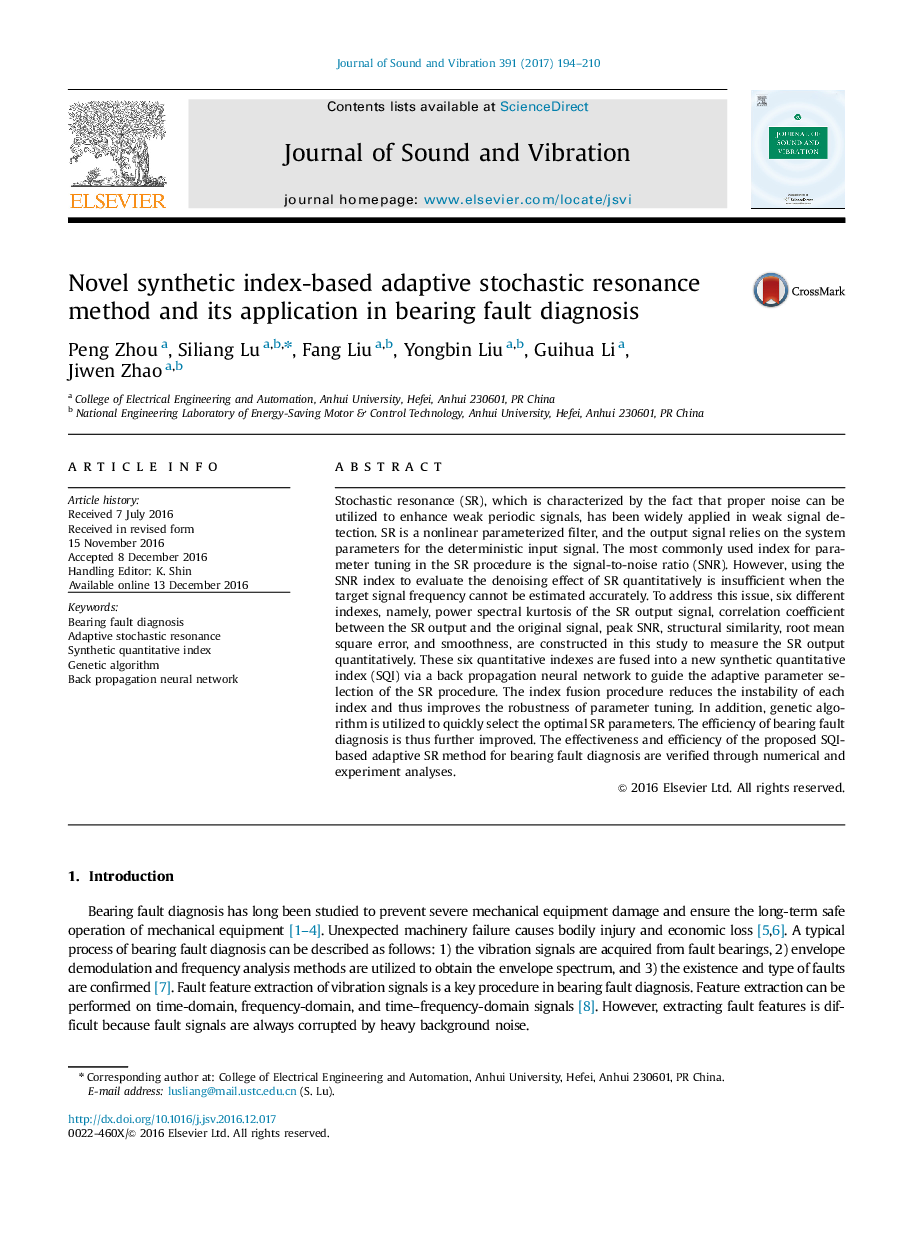ترجمه فارسی عنوان مقاله
روش رزونانس تصادفی مبتنی بر شاخص مصنوعی رمان و کاربرد آن در تشخیص خطا تحمل
عنوان انگلیسی
Novel synthetic index-based adaptive stochastic resonance method and its application in bearing fault diagnosis
| کد مقاله | سال انتشار | تعداد صفحات مقاله انگلیسی |
|---|---|---|
| 152424 | 2017 | 17 صفحه PDF |
منبع

Publisher : Elsevier - Science Direct (الزویر - ساینس دایرکت)
Journal : Journal of Sound and Vibration, Volume 391, 17 March 2017, Pages 194-210
ترجمه کلمات کلیدی
تشخیص خطا باربری، رزونانس تصادفی سازگار، شاخص کمی مصنوعی، الگوریتم ژنتیک، شبکه عصبی پخش برگشتی،
کلمات کلیدی انگلیسی
Bearing fault diagnosis; Adaptive stochastic resonance; Synthetic quantitative index; Genetic algorithm; Back propagation neural network;

